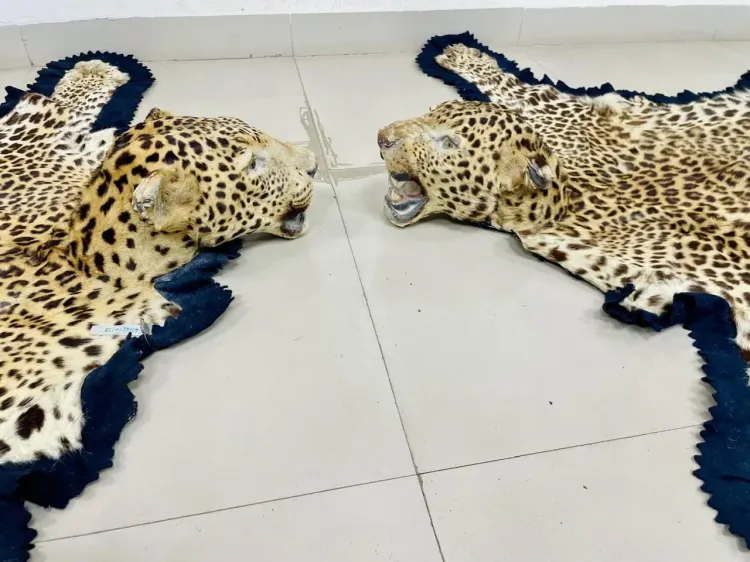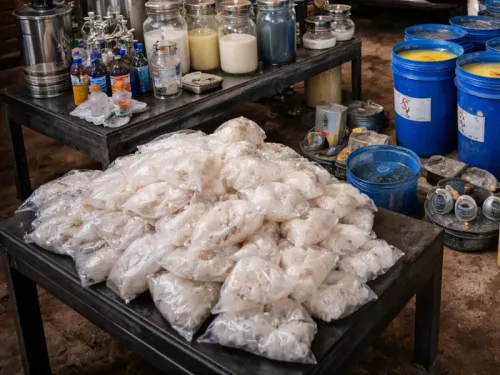How Did DRI Capture Two Suspects with Leopard Skins?

Synopsis
Key Takeaways
- Two suspects apprehended for illegal possession of leopard skins.
- Operation conducted by the DRI in Ujjain, Madhya Pradesh.
- Seized items include leopard skins and wild boar horn.
- Operation rooted in the Wild Life (Protection) Act, 1972.
- Continued efforts by DRI to combat wildlife trafficking.
Bhopal, May 6 (NationPress) The Directorate of Revenue Intelligence (DRI) Nagpur unit, operating under the Mumbai Zonal jurisdiction, has effectively detained two individuals involved in the illicit trafficking and possession of leopard skins. Following the operation, the confiscated wildlife items and the suspects were transferred to the District Forest Division of Ujjain for further inquiries, as mandated by the Wild Life (Protection) Act, 1972.
This significant operation took place in Ujjain, Madhya Pradesh, leading to the recovery of two leopard skins with heads and an ivory (wild boar horn) from the accused.
With actionable intelligence regarding attempts to sell these illegal wildlife products, the DRI team intervened at a hotel in Ujjain on the morning of May 4, culminating in the arrest of the suspects.
The confiscated leopard skins and ivory were seized under the Wild Life (Protection) Act, 1972, which strictly forbids the trade, purchase, or possession of leopard skins or any part of the animal, as leopards are classified under Schedule I of the Act.
The agency is actively engaged in numerous wildlife enforcement operations, including a recent initiative in Rajasthan’s Rajsamand district, where it seized two leopard hides and 18 leopard nails, resulting in the arrest of five individuals.
In March 2024, another successful operation in Vizag city led to the seizure of a leopard skin and the capture of four traffickers.
Moreover, the DRI’s Pune unit intercepted a leopard skin in Akola, Maharashtra, resulting in the arrest of three individuals.
This operation is part of DRI’s ongoing initiatives to combat wildlife trafficking.
Previously, in January 2025, the Nagpur unit apprehended three individuals in Akola district, recovering one leopard skin.
These successful operations highlight the DRI’s unwavering commitment to combating illegal wildlife trade and protecting India’s biodiversity.
Utilizing an intelligence-driven approach and robust enforcement capabilities, the DRI continues to dismantle trafficking networks and enforce wildlife protection laws in collaboration with other agencies.










